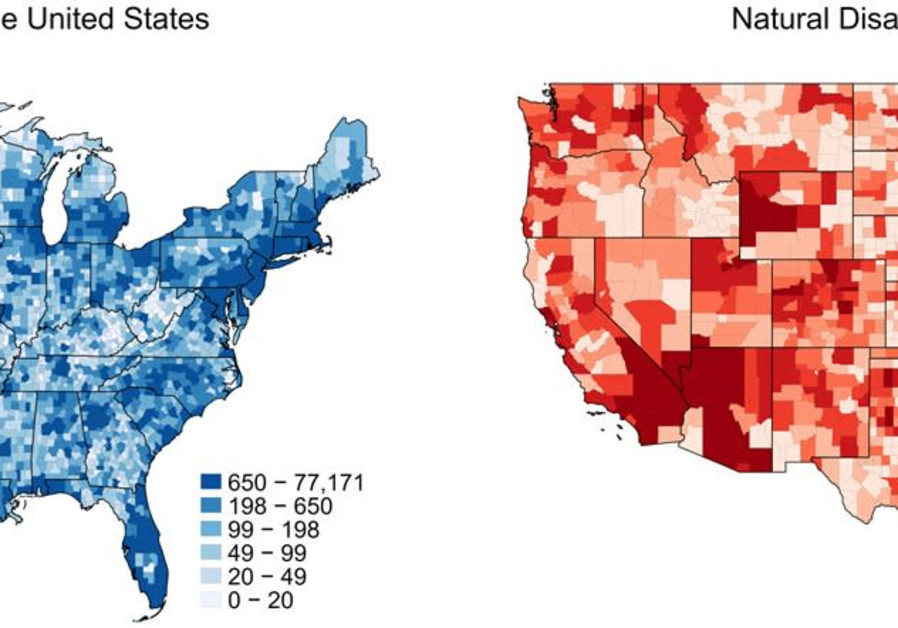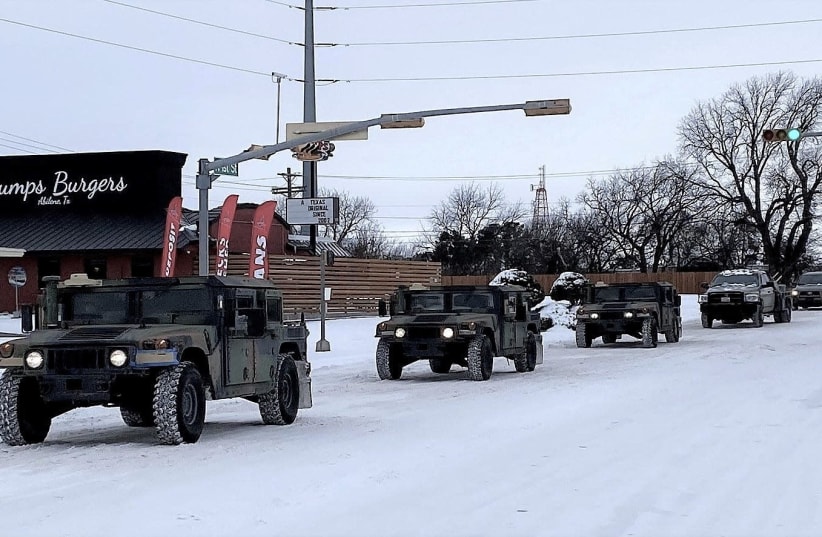Natural disasters lead to "definite reductions in crime levels in directly affected areas, as well as a "marked increase in philanthropy" from unaffected areas which surrounded the disaster zones, according to a new study done by researchers at the Hebrew University of Jerusalem (HUJI).The researchers looked at the impact of natural disasters on socioeconomic data to reach their conclusion.
The study, which was published in the journal Natural Hazards, analyzed data from disasters which took place in the US between 2004-2015, a period which saw over 10,000 individual disasters of differing scope which killed over 8,300 people, causing damage in excess of 100 billion dollars.
The team, which consisted of Professors Claude Berrebi, Ariel Karlinsky and Dr. Hanan Yonah, wanted to understand how people reacted in the wake of disasters in regard to social behavior and whether it impacted their levels of philanthropy and criminal activity.
While tropes in media have popularized a notion of widespread looting and chaos in the wake of major disasters, the researchers found that the communities impacted by disasters actually experience a decrease in crime.

The study compared data from groups which had been directly affected by disasters and groups which lived near the disaster, but were otherwise unaffected.
It found that while there was a slight uptick in criminal activity in surrounding unaffected areas, the actual disaster areas and their residents notably saw "definite reductions in crime levels."
In addition, the study found that while directly affected areas saw an understandable decrease in charitable giving, neighboring regions and even communities more distanced from the disaster zone would see a "marked increase in philanthropy."
The study proposed that the philanthropic trend could be driven by a shared sense of empathy and solidarity that neighboring communities have, attributing the lack of donations to a model known as Conservation of Resources (COR) – which posits that when one is fearful for their own resources, they are likely to reduce their spending to only more essential items.
Professor Berrebi said that “These findings have important implications for policy makers and others who are in charge of disaster response and crisis management."
"The study demonstrates how people respond when their resources are threatened, or even are believed to be threatened and this leads people to withdraw from social involvement, while at the same time, can inspire others to come out in solidarity and financial support," he said.
He concluded by emphasizing the reasons the study could be impactful, saying that "often official channels and governments can be slower in their responses and therefore policies that encourage volunteerism and increased civilian support for those directly affected can be of vital assistance in the immediate wake of such events.”
